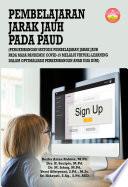
Contemporary Issues in Islamic Social Finance
The development of Islamic banking and finance (IBF) previously centred around three regions of the world: the Middle East, Southeast Asia, and South Asia. However, in recent years, this has expanded, as interest in IBF has gained momentum in Australia, the USA, and Europe, especially in the UK. Several Western market players have established their own Islamic window or subsidiaries to cater to the need of growing Muslim populations in these regions. This book examines the recent developments in IBF, particularly in the context of Islamic social finance instruments, such as Islamic microfinance, halal education, takaful, mutual funds, and waqf. It covers the religiosity, spirituality, and tawhid index, which promotes social well-being and empowerment. The book is interdisciplinary, and theories, practice, and key issues are presented simultaneously, introducing new ideas and techniques to the IBF community. Moreover, the book examines topics such as innovation in Islamic social finance instruments, advanced techniques of risk mitigation in Islamic capital markets, marketing and the halal industry, and shari’ah-compliant instruments, which are critical to Islamic finance. The book is an essential reference text for academics and research students at the master’s and doctorate levels in IBF.
- ISBN 13 : 100042622X
- ISBN 10 : 9781000426229
- Judul : Contemporary Issues in Islamic Social Finance
- Pengarang : Hussain Mohi-ud-Din Qadri, M. Ishaq Bhatti, M. Ishaq Bhatti,
- Kategori : Business & Economics
- Penerbit : Routledge
- Bahasa : en
- Tahun : 2021
- Halaman : 403
- Google Book : http://books.google.co.id/books?id=CYM0EAAAQBAJ&dq=intitle:Contemporary+Islamic+Studies&hl=&source=gbs_api
-
Ketersediaan :
... Islamic Studies, Faculty of Arts and Islamic Studies, Usmanu Danfodiyo University, Sokoto, Nigeria. Being the Head of Department, he has administered undergraduate, MPhil, and PhD programmes in Islamic Studies. Dr. Aminu Bala holds a ...





